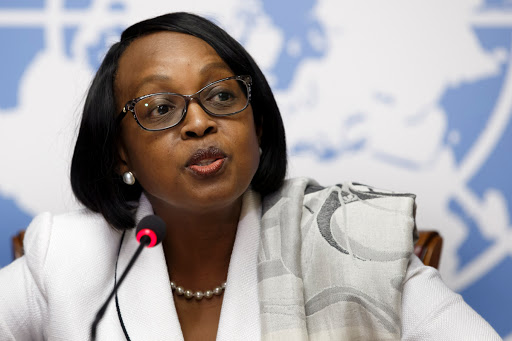United Nations agencies reinforced their commitment to support people in Libya’s South during a visit to Sabha of a UN delegation, that included Special Advisor of the UN Secretary-General in Libya Stephanie Williams, Resident and Humanitarian Coordinator Georgette Gagnon and representatives of the UN Country Team on 26 January.
In meetings with municipal officials, women, youth and civil society organizations, UN agencies and its Sabha partners agreed to closely collaborate and coordinate in an escalated effort to tackle the region’s long-standing humanitarian needs and development challenges.
“The humanitarian and development needs of people in Sabha are recognized and understood by the UN,” said Resident and Humanitarian Coordinator Gagnon. “We reinforce our commitment to addressing those needs through support for reconstruction and recovery in southern Libya linked closely with stabilization activities focused on national reconciliation, human rights, and social cohesion.”
The humanitarian and development needs of people in Sabha are recognized and understood by the UN
Municipal officials briefed Ms Gagnon and the UN Country Team on their needs in the region and discussed ways to increase UN support for health services, education, water and sanitation, inclusive development projects on community stabilization, rehabilitation of infrastructure including in schools and health facilities, local governance, and migration. Ms Gagnon informed that of 47 specific needs previously identified by the municipality, UN agencies were supporting half through projects that complemented the efforts of local authorities.
“We are fully ready to continue our support to the people of the South through our joint initiatives with the objective to make a tangible difference in people’s lives,” said Ms Gagnon. “The UN is committed to supporting local authorities in improving basic services delivery, increasing human security and creating opportunities for better, sustainable livelihoods.”
In a meeting with civil society organizations that deliver services in Sabha, Ms Gagnon underscored the importance of listening to local partners, and their vital role in promoting peace and resilience and pledged the UN’s continued technical and financial support to help them implement community-based initiatives, with emphasis on their priorities of building capacities among young Libyans, and empowering women in their roles as decision-makers, peacebuilders, first responders and economic actors.
The participants agreed that reviving the economy in the south is essential not only to improve livelihoods but also to build peace. The UN Country Team will continue fostering entrepreneurship and investing in new businesses, especially owned by women. UN agencies will also continue to support maternal and child health care services, child protection and the fight against COVID-19 throughout southern Libya.
